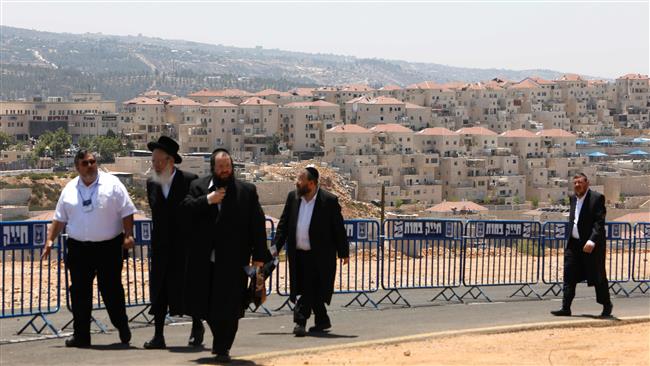
RNA - According to data released by Israel’s civil administration, 3,455 homes and buildings were built in three categories of private land in the West Bank, which are considered illegal under both Israeli and international law, Israeli daily Haaretz reported on Wednesday.
The first category includes 1,285 structures constructed on “clearly private land” that has never been considered as part of Israel.
Meanwhile, 543 structures in the first category have been built on formally-registered land belonging to Palestinian owners, referred to as “regularized private land” by the civil administration.
The other structures were found to be established in privately-owned lands after aerial photos revealed that the lands have been cultivated by Palestinians for years. Under Ottoman-era laws which are still applicable in the West Bank, such lands belong to the Palestinians who were cultivating them.
The second category includes 1,048 Israeli buildings “built on private land that had earlier been erroneously designated” Israeli land.
The third category covers 1,122 buildings constructed in the West Bank more than 20 years ago “when planning laws were barely enforced in the West Bank.”
Under Israel’s controversial outpost Regularization law passed earlier this year, all of the mentioned structures could be retroactively legalized.
The law stipulates that Israel will formally recognize any settlements built in the occupied West Bank “in good faith” -- without knowledge that its land was privately owned by Palestinians –if the settler provides minimal proof of the regime’s support for its construction as well as some form of compensation to the Palestinian landowners.
Tel Aviv claims that the expropriation of Palestinian-owned land is in the interest of Palestinians, as they can receive financial compensation for it.
Rights groups have warned that the law is in violation of the international law.
Israeli rights group ACRI denounced the legislation as “an act of illegal annexation,” arguing that the law was “a clear act of applying sovereignty” to Israeli settlements in the West Bank, as the regime continues to rule Palestinians with military law.
Rights groups say the law denies Palestinians the rights to their lands and it facilitates Israeli land grabs in Palestinian territory.
In recent months, Israeli authorities have made bold moves to consolidate control over the occupied East Jerusalem al-Quds, which is internationally considered as the capital of any future Palestinian state.
In an attempt to prevent any possible divisions of East Jerusalem al-Quds, the Israeli Knesset passed a preliminary reading of a bill last month which says any changes to Israel’s Basic Law on Jerusalem al-Quds requires the approval of 80 of the 120 Knesset members, instead of the regular majority vote.
On Tuesday, UN Security Council Assistant Secretary-General for Political Affairs Miroslav Jenea warned that the bill “could further cement Israeli control over occupied East Jerusalem and would limit the ability of both sides to reach a negotiated solution that is in line with UN resolutions and prior agreements.”
The UN official also warned that the measure could “spark violence” in the region.
Israel occupied the entire West Bank, including East al-Quds, during full-frontal military operations in 1967. It later annexed the territories. Neither move has ever been recognized by the international community.
Upon annexation, it began propping up the settlements, deemed as illegal by the international community due to their construction on occupied territory.
More than 600,000 Israelis now live in the settlements.
Israel’s settlement activities have the steadfast support of the United States, which keeps vetoing United Nations resolutions in their condemnation.
Last December, however, the UN Security Council declared all such settlements illegal after the then US president, Barack Obama, decided not to veto the relevant resolution in a surprise move.
Israeli Prime Minister Benjamin Netanyahu, whose right-wing coalition cabinet relies heavily on the support of heavy-weight settlement advocates, has, though, ignored the resolution and even stepped up the construction activities thanks to Washington’s silence under Obama’s successor, Donald Trump.
847/940